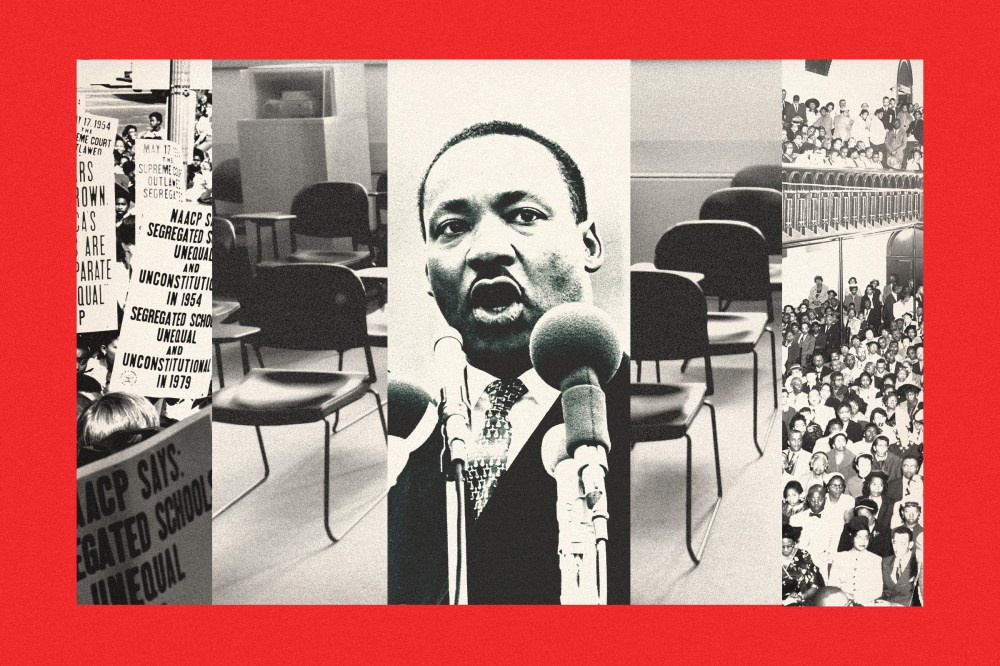We’re in the middle of Black History Month. But the news last week that Miami-Dade County Public Schools asked parents to sign a permission slip to let their students “listen to a book written by an African American” is a reminder of how much America has been in a state of upheaval about that history. Bigger than the issue of what books schoolchildren get to listen to, that upheaval has been driven by a single question: How do we tell the history of this country authentically?
Clashes over how to teach history authentically aren’t new, and they haven’t been exclusive to America.
We’ve seen schools ban books such as “Maus,” a Pulitzer Prize-winning graphic novel about the Holocaust, and (at least temporarily) ban films such as “Ruby Bridges,” which is about the 6-year-old Black girl who integrated an all-white school in New Orleans in 1960. Clashes over how to teach history authentically aren’t new, and they haven’t been exclusive to America. In his landmark book “Neighbors: The Destruction of the Jewish Community in Jedwabne, Poland,” historian Jan Gross writes: “The History of a society can be conceived as a collective biography … and if at some point in the collective biography a big lie is situated, then everything that comes afterward will be devoid of authenticity and laced with fear of discovery.”
Manny Diaz Jr., Florida’s education commissioner, said in a Tuesday statement: “Florida does not require a permission slip to teach African American history or to celebrate Black History Month. Any school that does this is completely in the wrong.”
But given that Gov. Ron DeSantis has waged a war against everything he considers “woke,” given that teachers have been excoriated and even let go for reading certain books to schoolchildren, and given that DeSantis wouldn’t allow an Advanced Placement course in African American studies to be taught in Florida, it’s not surprising that a permission slip like the one in Miami-Dade would be sent home to parents.
Any teaching of American history that excludes Black history and the history of other marginalized groups is inauthentic and a big lie, but why are so many ordinary people and politicians determined to leave it out in the first place? It’s as Gross explained: the fear of discovery.
Black history is a challenge to what America claims to be and a reminder to America of what it actually is. Black history warns America of what it could again become if we refuse to heed its lessons.

Black history reminds us that people will pervert the most noble of ideals in the name of maintaining supremacy. In response to the reinvigorated analysis of American slavery sparked by The New York Times’ Nikole Hannah-Jones’ “The 1619 Project,” public intellectuals and pundits across the political spectrum tried to undercut Hannah-Jones’ argument that American slavery was unique with some variation of the assertion that “slavery was a global and ancient phenomenon.”
That’s true, but that response doesn’t absolve America of its sin of slavery. Such a response also ignores that people focus on American slavery because the nation’s founders had the temerity to declare that “all men are created equal” — even as they sanctioned the trade of human flesh for profit. The only way a society can maintain such hypocrisy is to pervert the idea of equality to omit Black people.
In a June 11, 1963, speech, President John F. Kennedy, asked, “Are we to say to the world, and much more importantly, to each other that this is the land of the free except for the Negroes; that we have no second-class citizens except Negroes; that we have no class or caste system, no ghettoes, no master race except with respect to Negroes?”

Every generation of America that had existed had already answered with a resounding “yes.”












